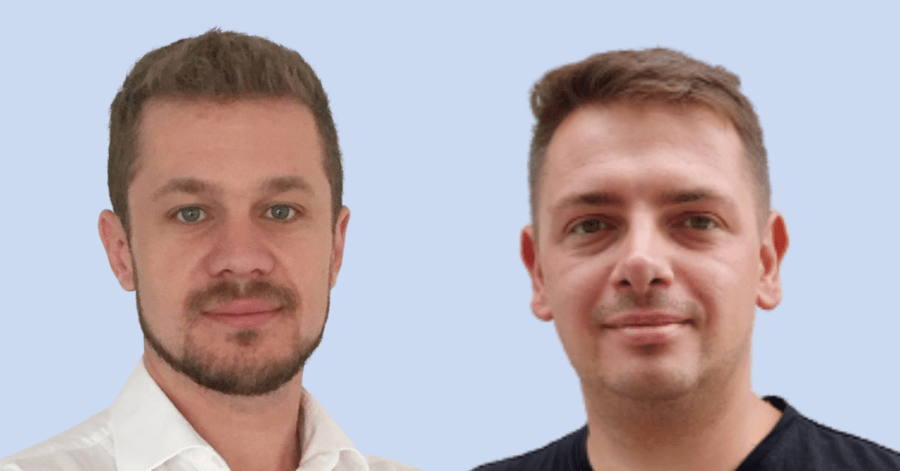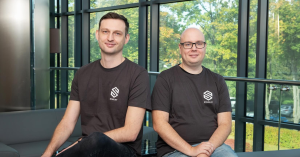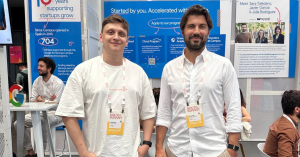• Octavic, the Oradea-based Industry 4.0 innovation startup, announced having raised a total of €770K in European funding in the last year.
• The funds are used to improve the company’s product efficiency tracker (PET) product, currently deployed for factory digitization by clients such as US-based manufacturer Plexus, Romanian pharma company Zentiva, and French healthcare multinational company Sanofi.
• The company aims to expand in the region and increase market share in Central and Eastern Europe.
The digitization rate of factories in Romania is below 5%. One of the reasons is that factories don’t appoint Chief Digital Officers, who have the necessary know-how and could lead the integration of a digital system in production. On top of that, investment budgets are small, and there is also a general reluctance to change, explains co-founder Felix Blaga in the press release.
Yet digitization is crucial for building agility in core industries. For a pharmaceutical company, for instance, better agility would translate into improved quality and safety of medicines produced. Imagine this pharmaceutical company’s factory had an automated way to collect data directly from production equipment in order to optimize processes like mixing, granulations, or packaging. Or to optimize product quality to meet regulatory standards with minimal operational effort.
Octavic aims to address the need for agility and drive digital factory transformation in Central and Eastern Europe. With their industrial automation software products, clients can get real-time insights from the factory floor, react with agility to productivity detractors, and optimize production management.
So far, Octavic has built a portfolio of clients in Romania, Hungary, Italy, India, Denmark, including large pharma, building materials, metalworks, automotive, food and beverage, and tobacco manufacturers. They closed 2021 with revenues of €300K.
How they are using European funding for Industry 4.0 innovation
After winning four European funding projects in one year, the company’s founders note the increase in competition in the Industry 4.0 innovation market. Only 20% of European companies that apply for such funding end up receiving it. The main criteria for judging winners are the degree of innovation, the technical quality, and the business impact of the digitization solution.
Overall, the funds allows the company to update their original product efficiency tracker product, which was developed in the context of partnership with foreign universities. PET addresses the need of customers to efficiently monitor consumption and solve the problem of stock traceability.
The secret to handling so many different funding projects, with different targets and requirements?
“We have a great team, we prefer to commit ourselves only to things that we can accomplish and that bring growth to our product. And most importantly, we empower people to have full ownership and autonomy over projects and customer interactions,” co-founder Paul Harfas tells The Recursive.
The latest funding received by the company came from Innovation Norway. €200K will be directed toward developing experimental software to help managers identify risk factors involved in production planning. Factories would be able to mitigate the risk of equipment failure or supply delays.
Meanwhile, through the European Connected Factory Platform for Agile Manufacturing project, they are investing €150K in developing a new predictive maintenance model that will offer real-time data, from performance history to equipment failure forecasts, further increasing agility in production processes.
Another project is focused on developing predictive technology using AI and IoT for the wood industry. Here, Octavic has teamed up with 16 international partners, including universities in Europe, within the 5G Timber project, funded with €170K by Horizon 2020.
Finally, the company has received €250K for the Distributed Artificial Intelligent System project, involving 47 partners from 11 countries. Here, Octavic contributes to the deployment of AI in distributed systems, by developing software and hardware components that integrate AI and IoT technologies in the industrial field.
Going forward, the company is planning to apply for other lines of financing to build new tools, such as 3D visualization of production and a consumption monitoring tool for production equipment, in the context of rising energy prices.
“We are in discussions about an investment with several private equity investors and partner companies from the EU and Latin America. We already have an outstanding product, we are quickly growing, and we would use the investment to accelerate our growth both geographically and across industries,” Paul Harfas tells us.
Elsewhere in Southeast Europe, other companies are pushing industry 4.0 innovation forward. Last year, IoT pioneer Schneider Electric Bulgaria, for instance, started a joint corporate innovation initiative with the Professional Association of Robotics and Automation (PARA) to launch a competition for industrial enterprises. For more manufacturing innovations from Southeast Europe, check out this list of regional startups and companies in the sector.








